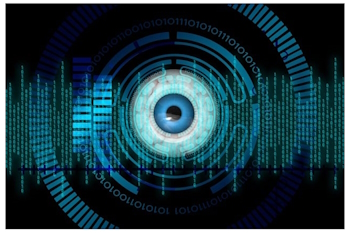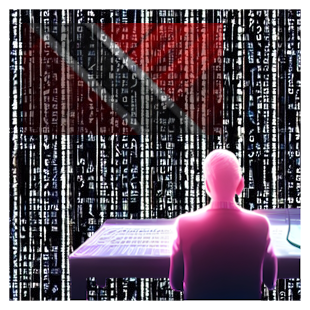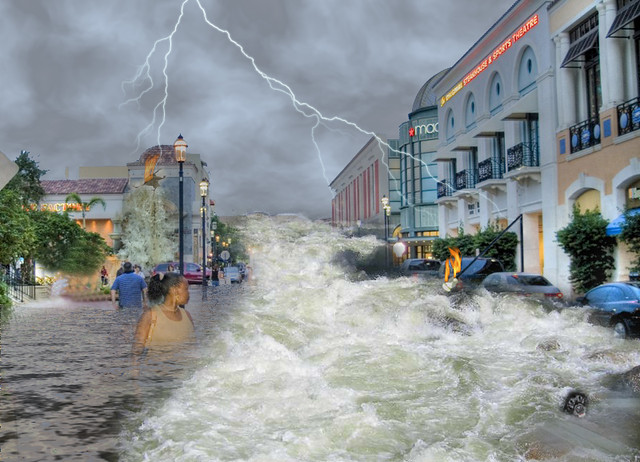
I’ve seen more and more people leaving Facebook because their content just isn’t getting into timelines. It’s an interesting thing to consider the possibilities of. While some of the complaints about the Facebook algorithms are fun to read, it doesn’t really mean too much to write those sort of complaints. It’s not as if Facebook is going to change it’s algorithms over complaints.
As I pointed out to people, people using Facebook aren’t the customers. People using Twitter-X aren’t the customers either. To be a customer, you have to buy something. Who buys things on social networks? Advertisers are one, of course.
That’s something Elon Musk didn’t quite get the memo on. Why would he be this confidence? Hubris? Maybe, that always seems a factor, but it’s probably something more sensible.
There’s something pretty valuable in social networks that people don’t see. It’s the user data, which is strangely what the canceled West World was about. The real value is in being able to predict what people want and influence outcomes, much as the television series showed after the first season.1

Many people seem to think that privacy is only about credit card information and personal details. It also includes choices that allow algorithms to predict choices. Humans are black boxes in this regard, and if you have enough computing power you can go around poking and prodding to see the results.
Have you noticed that these social networks are linked somehow to AI initiatives? Through Meta, Facebook is linked to AI initiatives of Meta. Musk, chief twit at X, has his fingers in the AI pie too.
Artificial intelligences need learning models, and if you own a social network, you not only get to poke and prod – you have the potential to influence. Are your future choices something that fall under privacy? Probably not – but your past choices probably should be because that’s how you get to predicting and influencing future choices.
I never really got into Twitter. Facebook was less interruptive. On the surface, these started off as content management systems that provided a service and had paid advertising to support it, yet now one has to wonder at the value of the user data. Back in 2018, Cambridge Analytics harvested data from 50 million Facebook users. Zuckerberg later apologized, and talked about how 3rd party apps would be limited. To his credit, I think it was handled pretty well.
Still, it also signaled how powerful and useful that data could be and if you own a social network, that would at least give you pause. After all, Cambridge Analytics influenced politics at the least, and that could have also influenced markets. The butterfly effect reins supreme in the age of big data and artificial intelligence.
This is why privacy is important in the age of artificial intelligence learning models, algorithms, and so forth. It can impact the responses one gets from any large language model, which is why there are pretty serious questions regarding privacy, copyright, and other things related to training them. Bias leaks into everything, and popular bias on social networks is simply about the most vocal and repetitive – not about what is actually correct. This is also why canceling as a culture phenomenon can also be so damaging. It’s a nuclear option in the world of information, and oddly, large groups of smart or stupid people can use it with impunity.
This is why we see large language models hedge on some questions presently, because of conflicts within the learning model as well as some well designed algorithms. In that we should be a little grateful.
We should probably lobbying to find out what is in these learning models that artificial intelligences are given in much the same way we used2 to grill people who would represent us collectively. Sure, Elon Musk might be taking a financial hit, but what if it’s a gambit to leverage user data for bigger returns later with his ethics embedded in how he gets his companies to do that?
You don’t have to like or dislike people to question them and how they use this data, but we should all be a bit concerned. Yes, artificial intelligence is pretty cool and interesting, but unleashed without question of the integrity of the information trained on is at the least foolish.
Be careful what you share, what you say, who you interact with and why. Quizzes that require access to your user profile are definitely questionable, as that information and information of people you are connected with quickly get folded into data creating a digital shadow of yourself, part of the larger crowd that can influence the now and the future.
- This is not to say it was canceled for this reason. I only recently watched it, and have yet to finish season 3, but it’s very compelling and topical content for the now. Great writing and acting. ↩︎
- We don’t seem to be that good at it grilling people these days, perhaps because of all of this and more. ↩︎








